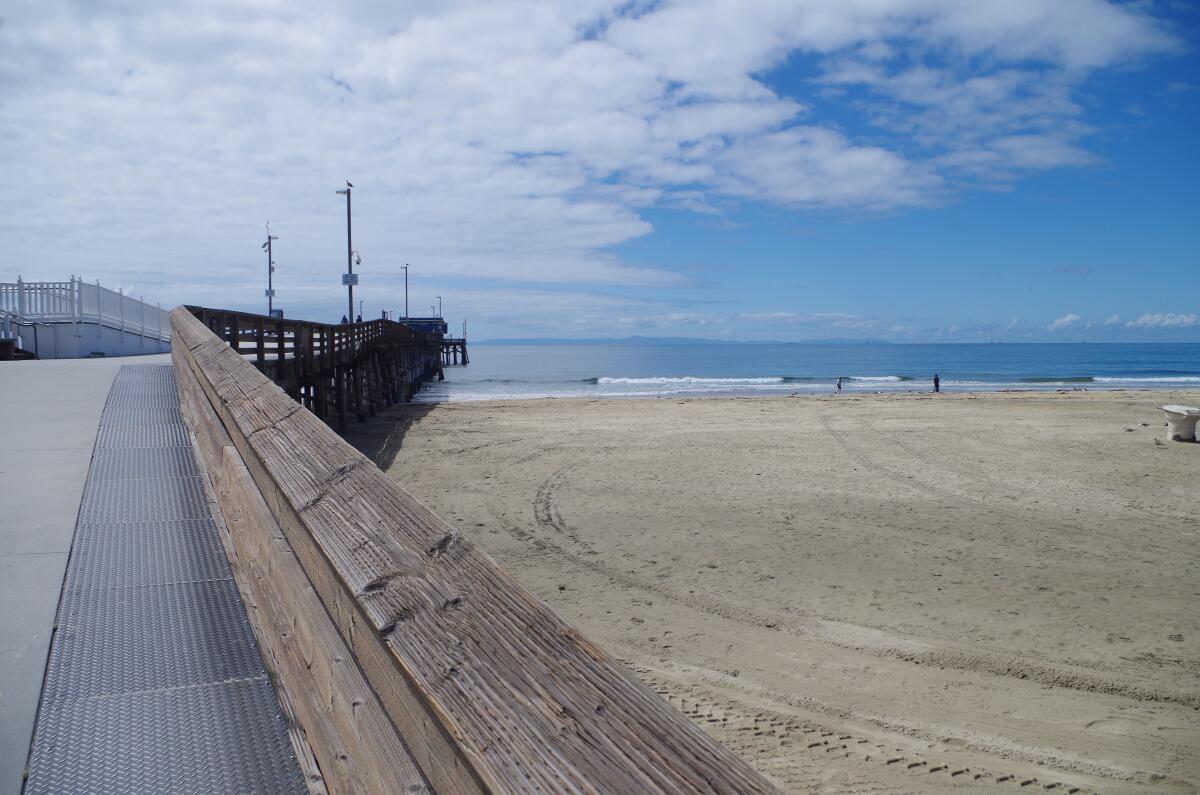Newport finds more than $13 million to fill revenue hole created by coronavirus

- Share via
Newport Beach is looking down a $13.5 million revenue hole because of the sudden economic impact of the coronavirus pandemic, and that’s just through June.
Sales tax revenue could drop as much as $1.3 million, according to projections released this month by the city finance department. Bed taxes — from hotels and vacation home rentals, large slices of Newport’s key hospitality industry pie — could plummet by $5.4 million. Revenue streams such as beachfront parking, classes at the recreation centers, gas taxes and permit reviews have also been dammed by nationwide stay-at-home orders to stem the spread of the virus.
Overall projected revenue losses for the remainder of the fiscal year, which ends June 30, could represent a 5.8% dip.
Local sales tax, driven by dispensable income and social gathering, draws mostly from auto sales, general retail and dining — and with a greater proportion of sit-down and fine dining and higher end shops, Newport is not in the same position to absorb sales tax losses as cities with more fast food and discount big-box stores like Walmart or Target, said Theresa Schweitzer, an accountant for the city.
The handful of hotels that remain open report occupancies of 2% to 10%, and vacation rentals went from weak to flat-lined when the City Council agreed earlier this month to suspend short-term rentals until mid-May.
City Finance Director Dan Matusiewicz said $13.5 million is a conservative estimate, and the city can absorb it by tightening up on spending without having to dip into reserves.
A temporary hiring freeze across all departments except front-line public safety could save $3 million alone, and City Manager Grace Leung said she doesn’t think the city needs to furlough employees at this time. Some part-time workers, especially in the events and programming-heavy parks and recreation departments, haven’t been picking up their usual hours but have been given work opportunities elsewhere in the city, she said.
The city also identified $2.6 million in savings in professional and contract services for the balance of the year.
In contrast, fiscal year 2020-21, which starts July 1, is “exceptionally challenging” to forecast without knowing the duration of stay-at-home orders and associated high unemployment, Matusiewicz said. Consumer reluctance to gather and travel is unknown and the sharpness of the economic drop-off is hard to compare to previous crises.
But if using the Great Recession of 2008-2010 as an analogue, revenues could drop by 8% to 10%, or $24 million. More conservatively, the finance department outlined losses of up to $39 million.
“We don’t know how all this is going to unfold except that most of our forecast is assuming that most of fiscal year 2021 will be impaired to some level,” Matusiewicz told the city finance committee at an April 16 meeting, where they reviewed his department’s projections.
At Tuesday’s City Council meeting, staff will broach the topic of canceling or delaying capital projects to cut expenses next year.
But before next year, Mayor Will O’Neill, who chairs the finance committee, encouraged the city to cut now because every dollar that makes it to the new fiscal year won’t need to be cut or take out of reserves then.
He noted that some of Newport’s neighbors have it worse — Costa Mesa, for example, is projecting a $10 million-$18.5 million, or more, revenue loss for the remainder of the fiscal year but their budget is only $174 million, while Newport’s potential drop comes from a pre-pandemic general fund of $231 million. And notably, Newport has diversified, property tax-heavy revenue streams. It is not majorly reliant on sales taxes.
“I am sure there are going to be cities, particularly the ones that rely heavily on sales tax, that the hole is almost Armageddon,” he said.
All the latest on Orange County from Orange County.
Get our free TimesOC newsletter.
You may occasionally receive promotional content from the Daily Pilot.




